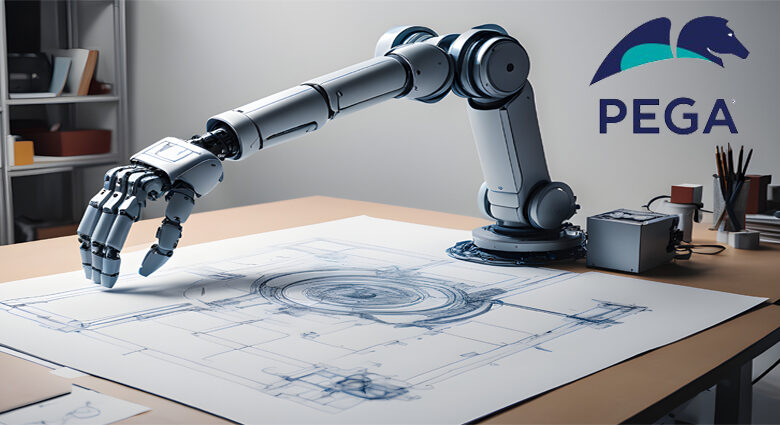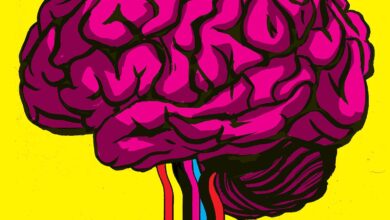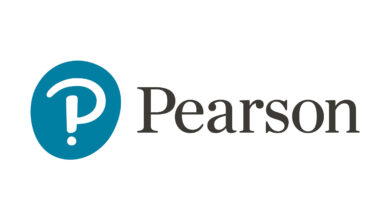Pega Releases Its GenAI Blueprint 2.0, Gives Enterprises More Generative AI Choice

Pega is expanding its generative AI (GenAI) offerings, with enhancements to its Blueprint platform and additional GenAI enterprise choices via Amazon Web Services (AWS) and Google Cloud.
Announced at PegaWorld iNspire, the company’s annual conference, Pega is looking to cement its place as the “leading enterprise AI decisioning and workflow automation platform provider” in the sector by leveraging GenAI to boost efficiency and provide users with greater flexibility.
The improvements to Pega GenAI Blueprint – the organization’s app design-as-a-service tool used for managing mission-critical workflows – include a more sophisticated user interface, as well as the ability to create personalized workflows informed by best practices for almost “every scenario imaginable.”
In addition, Pega customers will be able to access and utilize GenAI capabilities from their preferred large language model (LLM) due to the expansion of the framework to facilitate AWS and Google Cloud connections.
In discussing the company’s most recent enhancements, Don Schuerman – Chief Technology Officer at Pega – emphasized the importance of GenAI to Pega’s future customer service and experience strategies:
“The generative AI market is evolving rapidly as are generative AI strategies. Clients know the best model for them will depend on a variety of factors, including their own strategy and infrastructure, effectiveness, performance, speed, trust, and cost – so having choice is key.
The extension of these relationships underlines Pega’s commitment to becoming the workflow backbone for generative AI solutions to enable truly transformational change for our clients.
So, let’s take a closer look at how these new GenAI features will impact Pega’s customers.
Pega GenAI Blueprint
Pega detailed how the new features for its Blueprint platform help to “make innovation easy,” by enabling users to shift from app idea to functional app design more quickly and thoroughly than “any other workflow design tool.”
It achieves this by taking the description of an app concept and utilizing GenAI to design the necessary components within seconds – optimizing outdated legacy processes and increasing workflow personalization in the process.
The revamped platform will also now be equipped with the following features:
- Legacy transformation accelerators
- Live application previews
- Improved user interface
- Data model generation
- Enhanced collaboration
- Superior idea generation
- Partner supplied templates
For Kerim Akgonul, Chief Product Officer at Pega, the latest capabilities have the ability to “transform” the app desing process:
“The incredible response to Pega GenAI Blueprint has exceeded even our own high expectations.
It only takes a few minutes of blueprinting for people to realize the transformational power it brings to the app design process – and by extension, to the ability for organizations to innovate on a massive scale.
“We believe this is just the start for Pega GenAI Blueprint – there is endless opportunity for us to take this technology and apply it across the enterprise in revolutionary new ways.”
Pega’s Framework Expansion
Currently slated to be available in the second half of 2024, the new partnership will provide Pega users with access to a number of fresh GenAI services and models.
Chief among the offerings from AWS is Amazon Bedrock, a fully managed service providing access to a selection of high-performing foundation models (FMs) from top AI companies through a single API.
Google Cloud’s solutions, on the other hand, include Vertex AI, Google Gemini, and Claude from Anthropic, which Pega claims will provide users with the tools to build GenAI applications with “security, privacy, and responsible AI.”
The new models from AWS and Google Cloud will be available via Pega Connect GenAI.
This plug-and-play architecture enables low-code developers to create prompts and immediately benefit from GenAI in various workflows and decisions, accoridng to Pega.
The company’s developers will also be able to incorporate custom GenAI features into workflows – enhancing the productivity of employees and agents.
Rodrigo Rocha, Head of Global Apps ISV Partnerships at Google Cloud, commented on how the company’s products would benefit Pega’s customer base:
We’re excited to expand our partnership with Pega and provide its clients with access to our curated set of over 150 models in Vertex AI.
“Generative AI empowers organizations to transform their operations, making it more important than ever to equip customers with the ability to choose the best model to suit their business needs.”
More GenAI News from Pega
Unsurprisingly, the latest enhancements are far from the first time that Pega has made GenAI news.
Announced in April of this year, the company launched its GenAI Coach, a virtual “mentor” that assists and counsels employees.
The Coach analyzes an employee’s tasks and pertinent CRM data to intelligently direct them towards the most effective approach to complete their work.
Leveraging an organization’s sales, service, and operations best practices, along with contextual data, the virtual assistant determines the optimal path.
Prior to the Coach, Pega also unveiled its Knowledge Buddy, a GenAI-powered assistant that consolidates content from various enterprise knowledge bases to address both employee and customer inquiries.
Unlike many copilot solutions from other CX brands, Pega emphasizes that its offering is specifically designed for enterprise needs – delivering precise, audited, and concise responses while citing the source material.
Additionally, users can utilize Buddy to create new content, such as emails and documents, based on their knowledge repositories.



